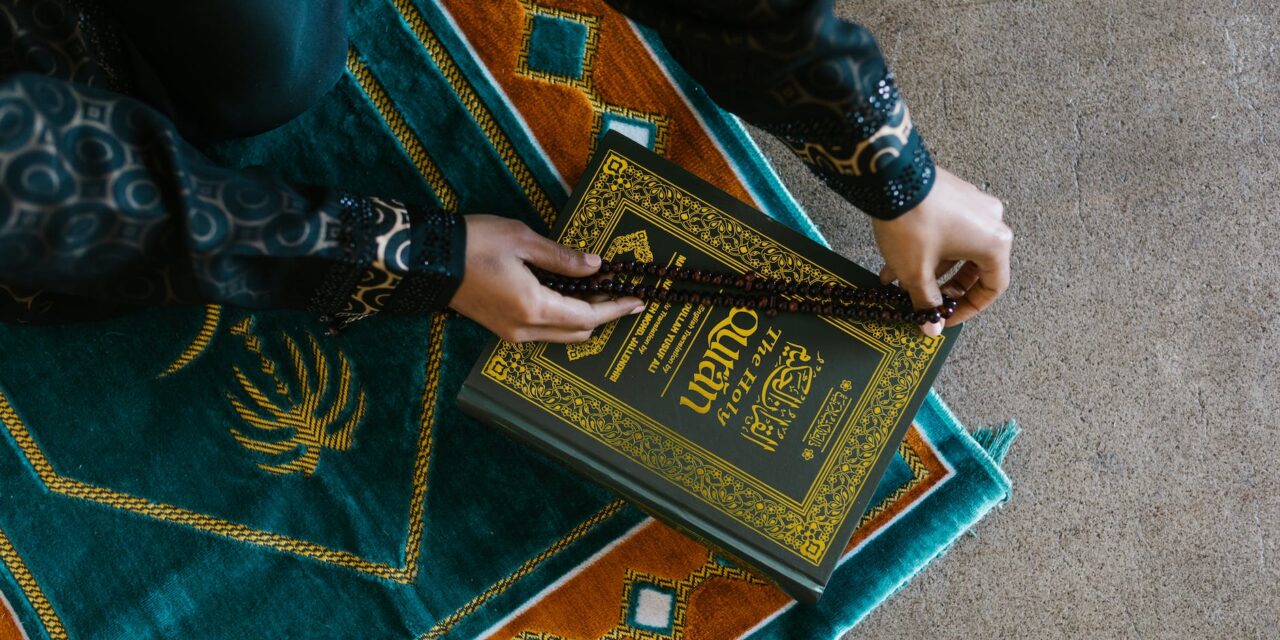Dubai is a city that is known for its luxurious lifestyle, modern architecture, and booming economy. However, religion also plays a significant role in shaping the culture and society of Dubai. In this article, I will provide an overview of the different religions practiced in Dubai and the impact of religion on the city’s culture and society.
- Key Takeaways
- Sunni and Shia Islam
- Islamic Practices and Customs
- Churches and Denominations
- Christian Practices and Customs
- Temples and Worship
- Hindu Practices and Customs
- Sikhism
- Buddhism
- Judaism
- What is the dominant religion in Dubai?
- What is the percentage of Muslims in Dubai?
- What is the percentage of Hindus in Dubai?
- What is the fastest-growing religion in the UAE?
- What was the religion in Dubai before Islam?
- What is the religion and culture in Dubai?
Islam is the predominant religion in Dubai, with over 90% of the population being Sunni Muslims. The city is home to many mosques, including the iconic Jumeirah Mosque, which is open to non-Muslim visitors for guided tours. Christianity and Hinduism are also practiced in Dubai, with many churches and temples located throughout the city. Additionally, there are smaller communities of Sikhs, Buddhists, and other religious groups.
Despite being an Islamic country, Dubai is known for its religious tolerance and freedom. The government allows non-Muslims to practice their religion and build places of worship. However, there are certain laws and cultural norms that visitors should be aware of, such as dressing modestly and avoiding public displays of affection.
Key Takeaways
- Islam is the predominant religion in Dubai, with over 90% of the population being Sunni Muslims.
- Dubai is known for its religious tolerance and freedom, allowing non-Muslims to practice their religion and build places of worship.
- Visitors should be aware of certain laws and cultural norms when visiting Dubai, such as dressing modestly and avoiding public displays of affection.
Overview of Religion in Dubai
Dubai is a cosmopolitan city that welcomes people from all over the world, regardless of their religion. However, Islam is the official religion of Dubai and the United Arab Emirates (UAE). It is an integral part of the local culture and society.
The Islamic faith is based on the belief that there is only one God (Allah) who should be worshipped. Muslims believe that Prophet Muhammad is the last and final prophet of God. They follow the teachings of the Quran, which is the holy book of Islam.
The majority of the population in Dubai is Muslim, with Sunni Islam being the predominant sect. However, there is also a significant Shia Muslim population, mainly concentrated in the Emirates of Dubai and Sharjah. Besides, there are followers of other religions such as Christianity, Hinduism, and Sikhism, among others.
Visitors to Dubai should respect the Islamic religion and Arabic culture and laws. Dressing conservatively is recommended, especially when visiting mosques or other religious places. Public displays of affection are frowned upon, and alcohol consumption is only allowed in licensed establishments.
In conclusion, while Islam is the official religion of Dubai, the city is welcoming to people of all faiths. Visitors should respect the local culture and laws to ensure a pleasant stay in this vibrant and multicultural city.
Islam in Dubai
As the official religion of Dubai and the United Arab Emirates (UAE), Islam plays a significant role in the daily lives of the residents. Here are some facts about Islam in Dubai.
Sunni and Shia Islam
Over 76% of the population in the UAE are Muslims, and the majority of them are Sunni Muslims. However, there is also a significant Shia Muslim population concentrated in the Emirates of Dubai and Sharjah, accounting for about 5-10% of the total population.
Despite some historical tensions between the two sects, both Sunni and Shia Muslims coexist peacefully in Dubai. The government ensures that both sects have the freedom to practice their religion and build their mosques.
Islamic Practices and Customs
Islam is a way of life in Dubai and influences many aspects of daily life, including dress, food, and social interactions. Muslims in Dubai follow the five pillars of Islam: Shahada (declaration of faith), Salat (prayer), Zakat (charity), Sawm (fasting), and Hajj (pilgrimage to Mecca).
Dubai has many mosques, including the iconic Jumeirah Mosque, which is open to non-Muslim visitors for guided tours. Muslims in Dubai pray five times a day, and the call to prayer can be heard throughout the city.
During the holy month of Ramadan, Muslims fast from sunrise to sunset and break their fast with an iftar meal. Non-Muslims are expected to respect the customs and traditions of the month, such as not eating or drinking in public during the day.
In conclusion, Islam is an integral part of Dubai’s culture and society. The government ensures that Muslims have the freedom to practice their religion, and non-Muslims are expected to respect Islamic customs and traditions.
Christianity in Dubai
Dubai is a multicultural city with a diverse population that includes Christians. As per the Holidify report, Christianity is one of the prevalent religions in Dubai. In this section, I will provide some information about Christianity in Dubai.
Churches and Denominations
Dubai has a few churches that cater to the Christian population. The most well-known churches in Dubai are St. Mary’s Catholic Church, Holy Trinity Church, Christ Church, and Jebel Ali Church. These churches belong to various Christian denominations, including Catholic, Anglican, and Protestant.
Christian Practices and Customs
Christianity is a religion that has many customs and practices. Christians in Dubai practice their faith in various ways, including attending church services, praying, and reading the Bible. As per the National News report, Christianity has a long history in the UAE, and the country has shown tolerance towards the religion.
Christians in Dubai celebrate Christmas, Easter, and other Christian festivals. During Christmas, many restaurants and hotels in Dubai offer special menus and events. Easter is also celebrated with various events and activities.
In conclusion, Christianity is one of the prevalent religions in Dubai. The city has a few churches that cater to the Christian population, and Christians in Dubai practice their faith in various ways.
Hinduism in Dubai
As one of the major religions in the United Arab Emirates (UAE), Hinduism has a significant presence in Dubai. Dubai is home to several Hindu temples and a thriving Hindu community. In this section, I will discuss the temples and worship practices in Dubai as well as some of the key Hindu customs and practices that are observed in the city.
Temples and Worship
The Dubai Hindu Temple is a place of worship for Hindus in Dubai. Located in Bur Dubai, the temple is a small prayer hall with two altars or shrines (“Sannidhis”) on two sides, one for Shiva and one for Krishna. The temple caters to the large Hindu community in the UAE and is a popular place of worship for Hindus in Dubai.
Another prominent Hindu temple in Dubai is the BAPS Shri Swaminarayan Mandir. Located in Abu Dhabi, the temple is a stunning piece of architecture and is one of the largest Hindu temples in the UAE. The temple is dedicated to Lord Swaminarayan and is a popular destination for Hindu pilgrims in the region.
Apart from these two temples, several other smaller temples and prayer halls cater to the Hindu community in Dubai. These temples provide a space for Hindus to come together and worship, celebrate festivals, and perform religious rituals.
Hindu Practices and Customs
Hindus in Dubai observe many of the same customs and practices as Hindus in other parts of the world. One of the most important practices is the worship of deities, which is typically done at home or in a temple. Hindus also observe many festivals throughout the year, such as Diwali, Holi, and Navratri.
Another important aspect of Hinduism is the practice of yoga and meditation. Many yoga studios and meditation centres can be found throughout Dubai, offering classes and programs for both beginners and advanced practitioners.
In addition, Hindus in Dubai follow many of the same customs and traditions as Hindus in other parts of the world. For example, many Hindus follow a vegetarian diet and avoid eating meat, fish, and eggs. Hindus also place a great deal of importance on family, and family values and traditions are often passed down from generation to generation.
Overall, Hinduism has a significant presence in Dubai, with several temples and a thriving Hindu community. Hindus in Dubai observe many of the same customs and practices as Hindus in other parts of the world and have a strong sense of community and tradition.
Other Religions in Dubai
Dubai is a diverse city with a mix of cultures and religions. While Islam is the official religion of Dubai and the UAE, there are also other religions practiced in the city. In this section, I will provide some information on the other religions in Dubai.
Sikhism
Sikhism is a religion that originated in the Punjab region of India in the 15th century. It is based on the teachings of Guru Nanak and emphasizes the importance of meditation, service to others, and equality. There are several gurdwaras (Sikh temples) in Dubai that serve the Sikh community.
Buddhism
Buddhism is a religion that originated in ancient India and is based on the teachings of Siddhartha Gautama, also known as the Buddha. It emphasizes the importance of mindfulness, compassion, and non-violence. While there are not many Buddhist temples in Dubai, there are several meditation centres that offer classes and workshops for those interested in practising Buddhism.
Judaism
Judaism is a monotheistic religion that originated in the Middle East over 3,500 years ago. It is based on the belief in one God and the importance of following the laws and commandments outlined in the Torah. While there are not many synagogues in Dubai, there is a small Jewish community in the city that celebrates Jewish holidays and traditions.
Overall, while Islam is the predominant religion in Dubai, the city is home to a diverse mix of cultures and religions. The government of Dubai is committed to promoting tolerance and acceptance of all religions and has taken steps to ensure that people of all faiths can practice their religion freely and openly.
Religious Freedom and Tolerance in Dubai
Dubai is a Muslim-majority city where Islam is the official religion. The Constitution of the United Arab Emirates guarantees freedom of worship as long as it does not conflict with public policy or morals. It states that all persons are equal before the law and prohibits discrimination on grounds of religious belief. In practice, Dubai is known for its religious tolerance and acceptance of other faiths.
According to a report by the United States Department of State, individuals belonging to non-Islamic faiths said they could worship in private without government interference. The government generally respects the right to freedom of religion by established customs. However, there are some restrictions, such as attempts to spread Christianity among Muslims are not permitted.
Dubai is home to many expatriates from different parts of the world, and the city has many places of worship for different faiths. The government has recognized and supported the construction of religious buildings for non-Muslims, including churches, temples, and gurdwaras. Additionally, Dubai hosts an annual interfaith conference, the World Tolerance Summit, to promote interfaith dialogue and understanding.
Conversion from Islam is strongly discouraged, but conversion to Islam is encouraged. Non-Muslims are not allowed to proselytize, and public preaching of non-Muslim religions is prohibited. However, private religious gatherings are allowed, and expatriates are free to practice their religion in their homes or designated places of worship.
In conclusion, Dubai is a city known for its religious tolerance and acceptance of other faiths. Although there are some restrictions, the government generally respects the right to freedom of religion by established customs. Dubai is home to many expatriates from different parts of the world, and the city has many places of worship for different faiths.
Impact of Religion on Dubai’s Culture and Society
Religion plays a significant role in shaping the culture and society of Dubai. Islam is the official religion of Dubai, and it is deeply ingrained in the daily lives of its citizens. The impact of religion can be seen in various aspects of Dubai’s culture and society, including its laws, traditions, and customs.
One of the most significant impacts of religion on Dubai’s culture is the strict adherence to Islamic laws and customs. Dubai’s legal system is based on Sharia law, which governs all aspects of life, including personal conduct, family law, and business transactions. For example, alcohol consumption is strictly regulated, and public displays of affection are not allowed. Visitors to Dubai should be aware of these laws and respect them to avoid any legal issues.
Religion also influences Dubai’s social customs and traditions. Family values and respect for elders are highly valued in Islamic culture, and this is reflected in Dubai’s society. Hospitality is also a significant aspect of Dubai’s culture, and visitors are often welcomed with open arms. Ramadan, the holy month of fasting, is also an essential part of Dubai’s culture, and it is celebrated with great enthusiasm and devotion.
Furthermore, religion has played a significant role in the development of Dubai’s architecture and art. Islamic art and architecture are characterized by intricate geometric patterns and calligraphy, and these elements can be seen in many of Dubai’s buildings and public spaces. The iconic Burj Khalifa, for example, features Islamic-inspired geometric patterns on its exterior, while the Dubai Mall has a beautiful Islamic art gallery.
In conclusion, the impact of religion on Dubai’s culture and society is significant and cannot be ignored. It has shaped the way people live, work, and interact with each other. Visitors to Dubai should be aware of these cultural and religious influences and respect them to enjoy a pleasant stay in this beautiful city.
Conclusion
In conclusion, Dubai is a city with a diverse religious landscape. Islam is the official religion of the United Arab Emirates, and approximately 76% of the population is Muslim. The remaining population consists of Christians, Hindus, Buddhists, and other religions.
Religious freedom is generally respected in Dubai, and people are free to practice their religion in private. However, public displays of non-Muslim religious symbols are not allowed, and proselytizing is prohibited.
Dubai is home to several beautiful mosques, including the Jumeirah Mosque, which is open to non-Muslim visitors for guided tours. There are also churches, temples, and other places of worship for non-Muslims in the city.
It’s important to note that while Dubai is a Muslim city, it is also a modern and cosmopolitan city that welcomes people of all religions and cultures. Visitors should be respectful of local customs and traditions, but they can also feel comfortable expressing their own religious beliefs.
Overall, Dubai’s religious landscape is an important part of its cultural identity and adds to the city’s unique character.
Frequently Asked Questions
What is the dominant religion in Dubai?
Islam is the dominant religion in Dubai. It is also the official religion of the United Arab Emirates (UAE). According to Wikipedia, approximately 76% of the population of the UAE practices Islam. The ruling families of Al Nahyan and Al Maktoum adhere to Sunni Islam of the Maliki school of jurisprudence.
What is the percentage of Muslims in Dubai?
As per Dubai Online, virtually all Emiratis are Muslim and around 85 percent of these are Sunni. The rest of the Muslim population consists of Shiites, Ismailis, and Ahmadiyas.
What is the percentage of Hindus in Dubai?
Hindus constitute around 6-10% of the total population of Dubai and UAE. As per Holidify, the Hindu businessmen from India had played a major role in the development of Dubai and were thus granted to construct a temple in Bur Dubai by a former Emir.
What is the fastest-growing religion in the UAE?
Christianity is the fastest-growing religion in the UAE. According to Gulf News, Christianity has been growing at a rate of 5.2% per year in the UAE, and the number of Christians in the country has increased from 700,000 in 2010 to over 1 million in 2020.
What was the religion in Dubai before Islam?
Before Islam, the region of Dubai was primarily inhabited by a tribe called Bani Yas. They were followers of a polytheistic religion that involved the worship of idols and spirits. However, the arrival of Islam in the 7th century brought about a significant change in the religious landscape of the region.
What is the religion and culture in Dubai?
Dubai is an Islamic state, and Islam plays a significant role in the culture of the city. However, the government of Dubai promotes religious tolerance, and people of different religions live together in harmony. In addition to Islam, there are several other religions practiced in the city, including Christianity, Hinduism, and Sikhism. Dubai is known for its cultural diversity and is home to people from different parts of the world.

























